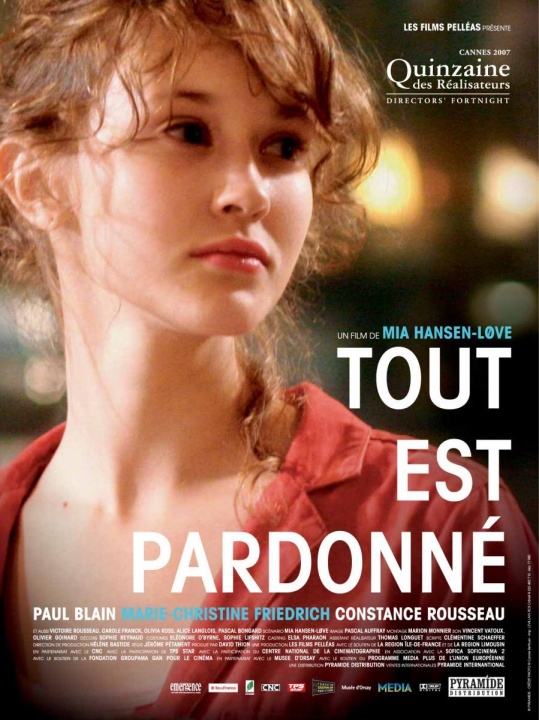An assured feature debut from Mia Hansen-Løve who deals with the film’s father-daughter bond/estrangement with a clear-eyed sensitivity.

Review #2,118
Dir. Mia Hansen-Løve
2007 | France | Drama | 100 mins | 1.66:1 | French & German
PG13 (passed clean) for sci-fi violence and brief language
Cast: Paul Blain, Marie-Christine Friedrich, Constance Rousseau
Plot: Victor adores his wife Annette and their young daughter Pamela, but his self-loathing and drug use take their toll and the family disintegrates. A decade later, Pamela, now a young woman, lives in Paris where Victor still resides, opening the door to a possible reconciliation.
Awards: Nom. for Camera d’Or & Official Selection – Directors’ Fortnight (Cannes)
International Sales: Pyramide Films
Accessibility Index
Subject Matter: Moderate – Family, Separation, Reconciliation
Narrative Style: Straightforward
Pace: Slightly Slow
Audience Type: Slightly Arthouse
Viewed: MUBI
Spoilers: No
The French have been really good with these small, indie pictures about relationship dynamics, be it between lovers or among friends or family.
In Mia Hansen-Løve’s debut feature, All Is Forgiven, she shows her talent for exploring these dynamics with a clear-eyed sensitivity, an aspect that has broadly permeated through her future works such as Goodbye First Love (2011) and Things to Come (2016).
Hers is a cinema of nuances, focusing as much on the reservoir of emotions hidden behind a person’s physical façade as with his or her performative facial expressions.
We see it come into play in All Is Forgiven, a film about a father, Victor, who becomes estranged from his very young daughter, Pamela, after his wife leaves and takes her away. It’s all Victor’s fault really, seeking a secret life of drugs and drinking instead of providing for his family.
A film about the passing of time and how this might spark forgiveness and reconciliation, All Is Forgiven is cautious about taking it head-on, as a more explicit and generic treatment might falsely render it sentimental and melodramatic.
Instead, we see Hansen-Løve tackling the father-daughter bond/estrangement with a quiet authenticity, taking time to let the emotions of her characters hover within and without.
Constance Rousseau who plays the teenage grownup Pamela is a revelation—not only is she strikingly pretty, she also skillfully portrays her character with a shy and reticent style. Some of the film’s finest moments come in the rendezvouses with her older—and more mature—father.
Grade: B+
Trailer:











